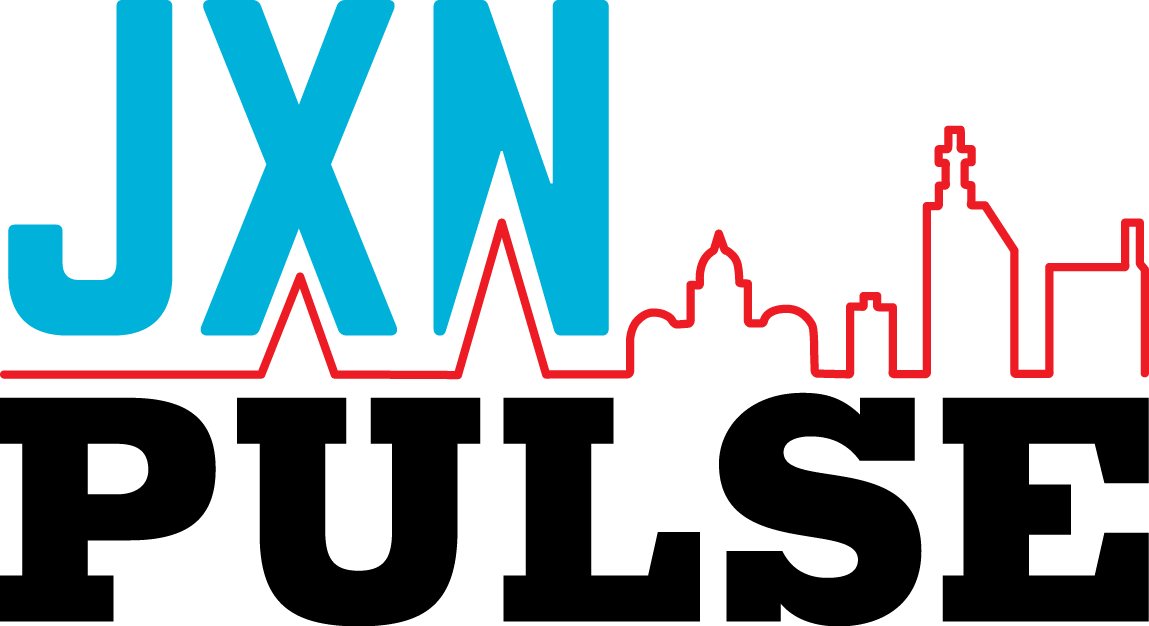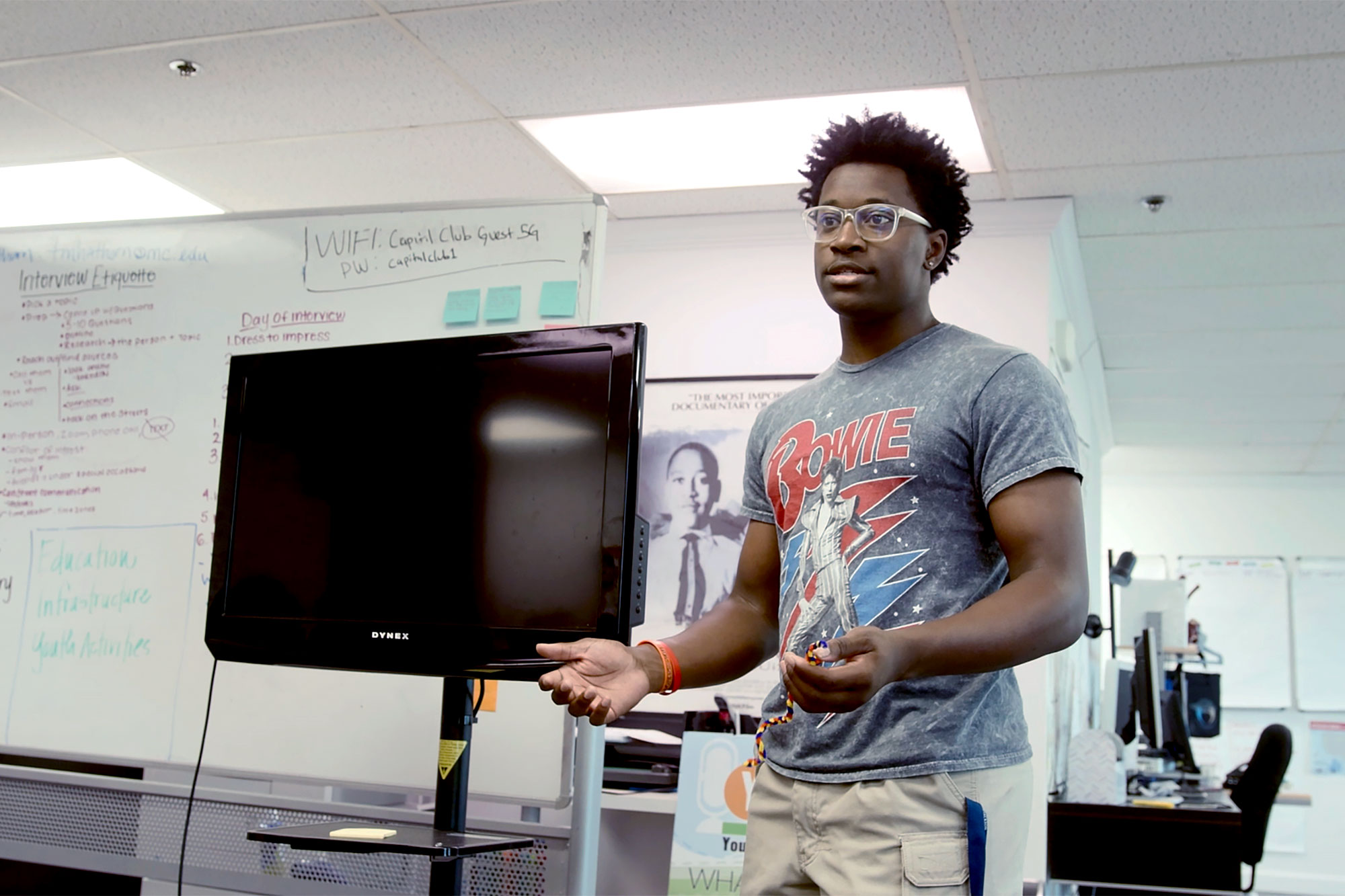By Zaniyah Clayborne
JACKSON, Miss.—In recent years, election coverage of how to engage with and cover election issues that matter to young Americans has emerged as a crucial aspect of modern journalism. As younger people have become increasingly influential in politics due to their interest in issues such as global warming, abortion rights and the war in Gaza, understanding and addressing their views on politics is important—but much media coverage ignores us or assumes they know what we care about.
This summer at the Mississippi Youth Media Project, student journalists worked on a variety of articles, all dealing with election coverage. Three groups identified different issues vital to young voters to collaborate on, and each student completed individual coverage about the electoral process, from media coverage to civic education, and how it fails young people.
The students interviewed voters of all ages as well as important present, past and hopeful officials, including retired Rep. Alyce Clarke, former Gov. Phil Bryant, U.S. Senate hopeful Ty Pinkins and state Sen. Bradford Blackmon. This mix of interviews sought real information and deeper thought than the usual political sound bites and helped the student journalists to produce stories that are not typical election fare that, we hope, lead to a deeper discussion in other newsrooms about how to deepen and widen coverage beyond the 2024 elections, regardless of the outcome.
We Collaborated Across Generations
Many YMP participants did not start here in early June already interested in politics or believing that our voices mattered much around elections. But we all now agree that youth engagement in elections helps keep both young people and the adults around us informed about different aspects of the election and creates an upcoming pipeline of enthusiastic voters. Our newsroom conversations confirmed that young people grow up without proper voter or civic education in schools.
A survey by the Center for Information and Research on Civic Learning and Engagement found that young people who have voter education in school grow up to be more informed and involved voters. “Informed voters make informed choices,” La’Ziyah Walker, a second-year 2024 YMP student-mentor, said.
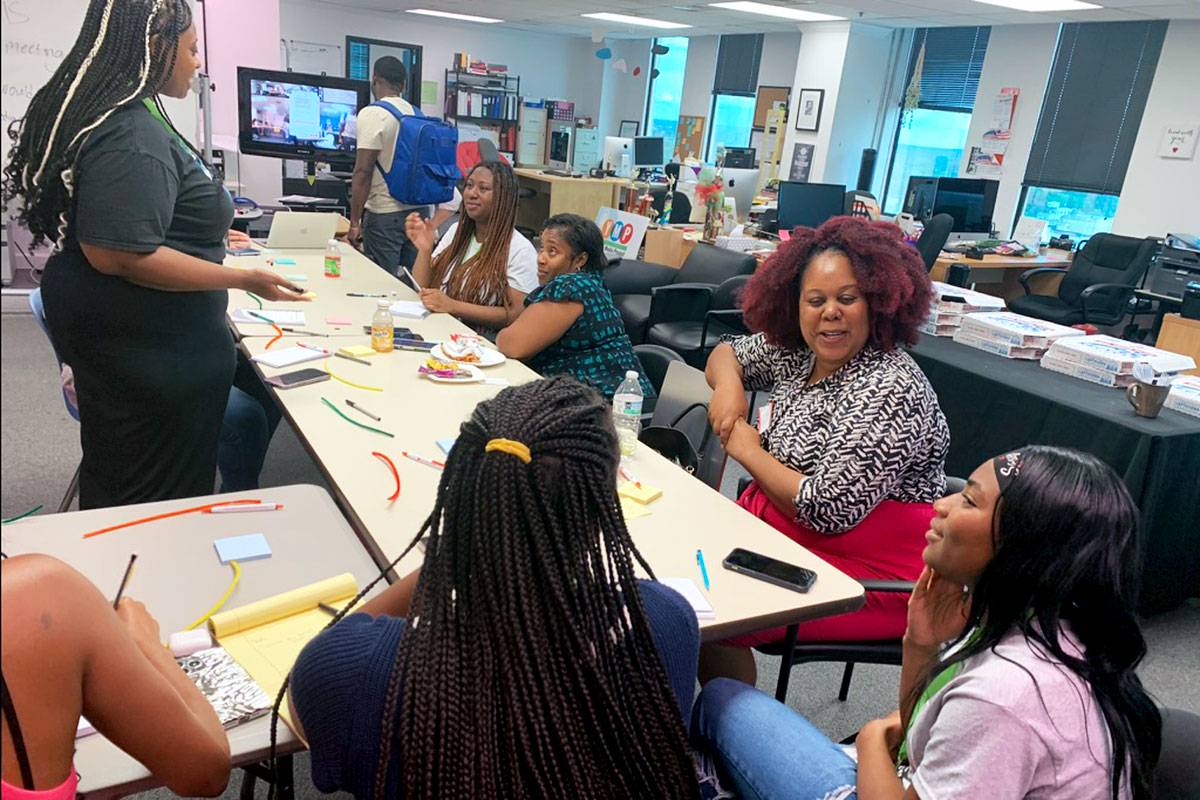
We didn’t go on this journey alone. Mississippi Free Press mentors invited us to participate and help lead solutions circles about election coverage during the summer and during the fall for four virtual and physical election circles. We also joined with MFP journalists and community members in our newsroom to discuss how the media could better cover elections, filling many large stickies with ideas across those dialogues—and followup ideas. They they go back to a larger circle for more discussion, be reported on or considered for other actions?
We then used the outcomes and ideas to inspire and deepen our own stories that are published at our journalism site, jxnpulse.com, as well as excerpts in our digital “Reimagining Elections” flipbook to be shared on social media and with journalists across the U.S. We hope it helps other media outlets as they plan future coverage.
Closing the Generation Gap Together
Engaging young people in elections helps to close the gap between generations. The most recent census showed that voters aged 18 to 29 have had higher election turn-out in recent years, though they still lagged behind the older generation. In 2016, around 46% of young voters in that age group showed up to the polls, and 2020 saw an 11-point increase from that already-high margin.
But young people just don’t see or share a lot of election coverage. “News isn’t always properly shown on the platforms that I use,” said Paris Braggs, a second-year 2024 YMP student-mentor.
“We get a lot of our information about election-related topics on social apps, like TikTok and Instagram,” University of Mississippi student Whitney Jones told me. “Young people aren’t always drawn to watch the news on tv, especially since most people prefer to stream rather than watch cable.”
The students at YMP are trying to do what they can to change election coverage for young voters—and not just those who are voting this year. Even though most of the YMP students are not yet old enough to vote, they understand that the people who get elected have the power to make major changes in the daily lives of citizens. They also now fully realize how important it is to create a pipeline of future voters now—and even if they’re not old enough to vote in November, they may inspire their family members to turn out.
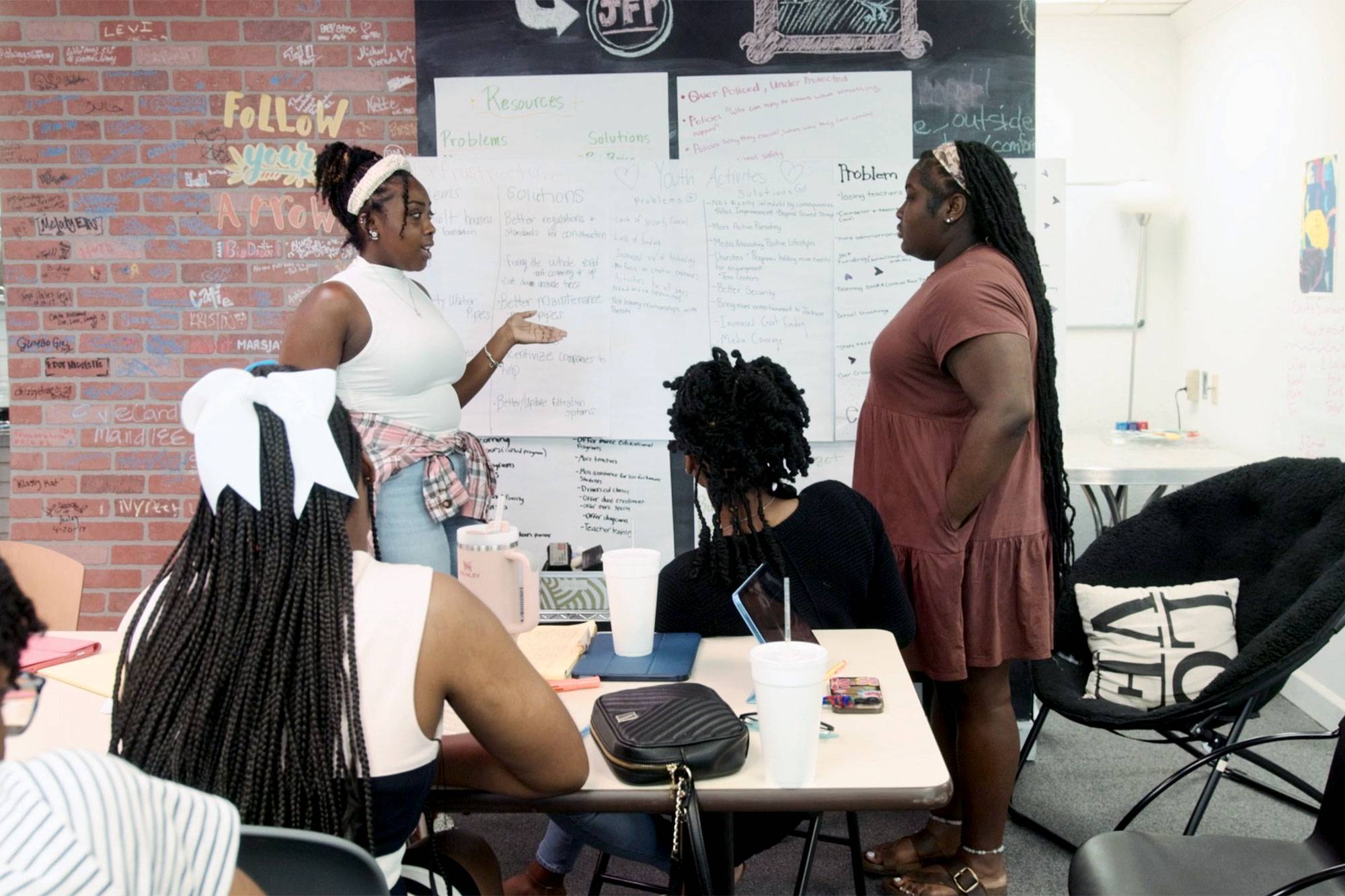
The main goal of our summer circles and think-tank was imagine solutions about how the media can better cover the election—for everybody, but especially younger and will-be voters. Some of the solutions included adding in a personal element to the story and telling the news accurately and objectively rather than through sensational sound bites that lead to stereotypes—such as painting Black people and immigrants as criminals or Black-led cities like Jackson as bad places to live.
A personal element, such as a narrative story about a specific person as you’ll see “lead” most of our stories, gives readers something to hook on to. “Sometimes facts and stats aren’t fun to read,” Braggs said. “Having the personal element helps keep me interested.”
“Lots of news that I read and watch is favoring one side over the other,” said second-year YMP student mentor Laila Henderson. Many people are looking for the whole story to be told and without always being divided into two opposing sides, which helps readers and watchers make decisions on their own.
Teenagers Leading Teenagers
Murrah High School graduate and incoming Jackson State freshman Hart Jefferson, 18, led the first student solution circle and is co-lead of MFP solution circles across Mississippi. The students split into groups and identified problems that need solutions—like how Mississippi can have better infrastructure, more youth activities and better education. We then talked about potential solutions of the kind that the media could also ask candidates about rather than the same questions over and over again.
“Having those kinds of conversations helped us figure out what our individual projects were going to be,” said Ferrari Shakespeare, a 2024 YMP student journalist.
YMP’s work and joint circles also helped the Mississippi Free Press plan its own coverage. “Just sitting and listening to the teenagers and adults discussing challenges and how to fix them is really going to help the MFP’s election coverage this fall,” YMP founder and director Donna Ladd said.
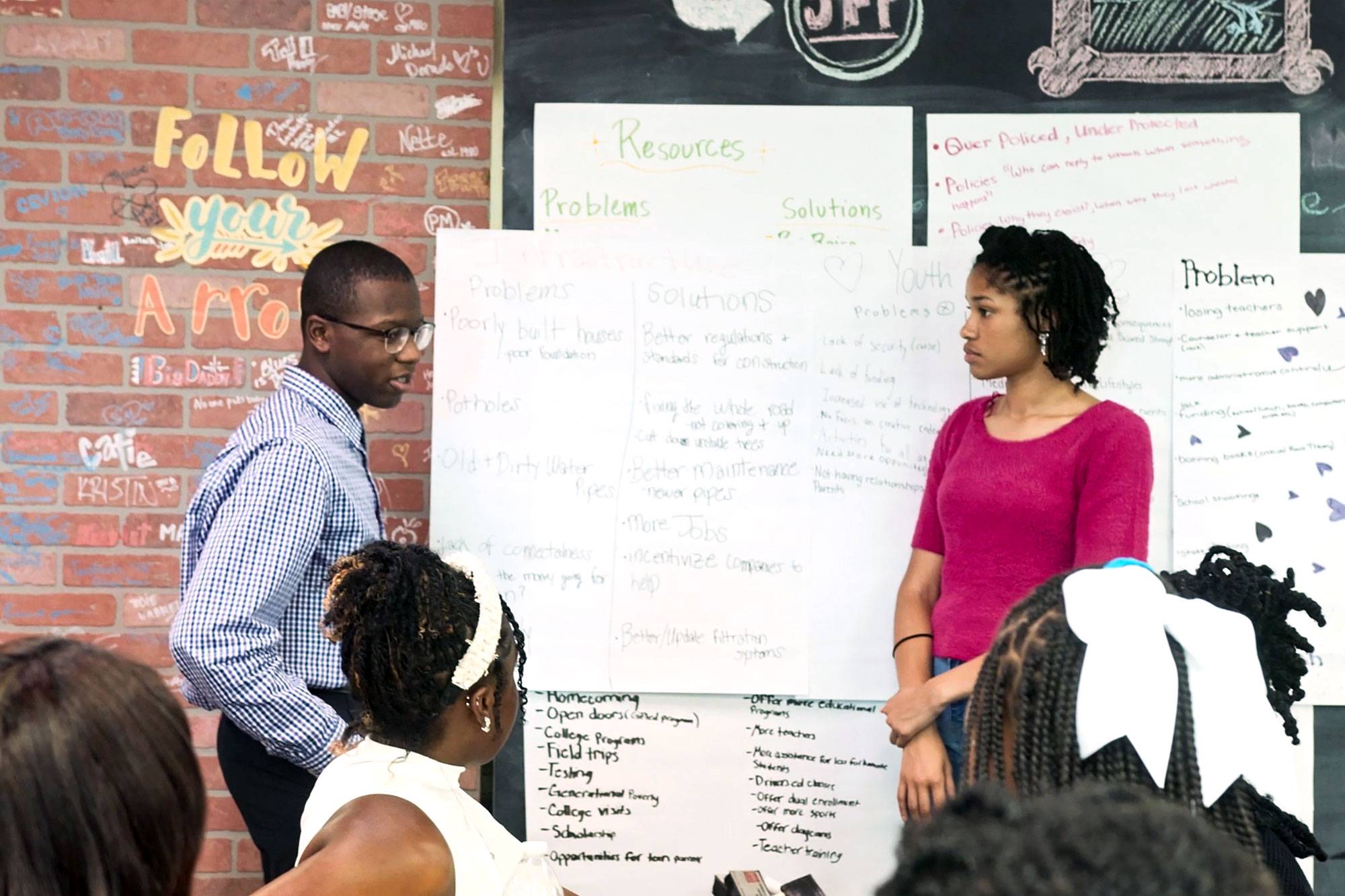
The solution-circle experience inspired the students. “It opened my mind to the range of problems that are apparent in Mississippi, and I think that we as the youth can help create the change,” YMP student journalist Kirstyn Lyles said.
“The think-tank we did allowed us to have a space to talk to older people about what issues were important to us,” YMP student journalist Allison Dukes said. “Sometimes older people feel like our opinions about the world don’t matter. We need more people, especially older adults, to take the time to listen and understand what we think about certain issues,” Dukes adds.
That means journalists, too.
